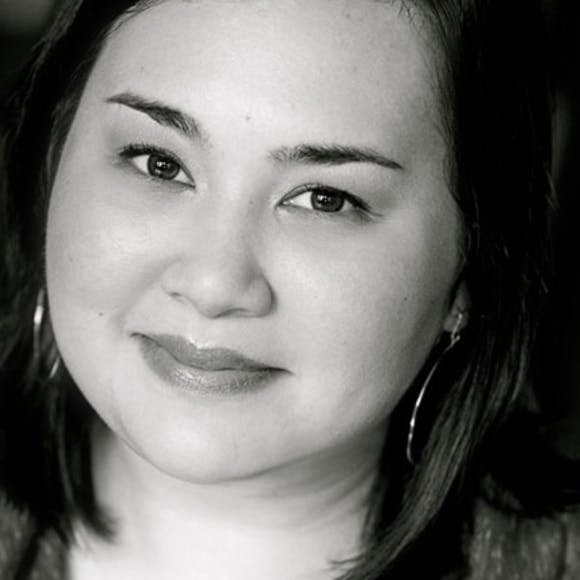
Author: Simon Kuper
Author Bio:
"Simon Kuper is a journalist who writes for the Financial Times and publishes in newspapers and magazines around the world. He is one of the world’s leading writers on soccer. His book Football Against the Enemy won the William Hill Sports Book of the Year award. His works are also widely read in translation. Born in Uganda, Kuper spent most of his childhood in the Netherlands and now lives in Paris."
1. Lionel Messi joined the Club at just age 13 and quickly became a bigger superstar than even Ronaldinho. Was there ever any tension between the two mega stars and did Barcelona have a hard time marketing them both equally?
No tension – Messi worshipped Ronaldinho. In fact, the problem was that they became too close: Ronaldinho recognized the teenage Messi as a fellow genius, invited him to take a place in his corner of the locker-room, and then began taking him out on the town.
Barcelona sold Ronaldinho in 2008 partly because it realized that his party lifestyle was a bad influence on Messi. But Messi didn’t realize that at the time, and he was furious. As for marketing: Barcelona didn’t do much of that in those days, when soccer was still a bit more innocent.
2. Your book also highlights 3-time Ballon d'Or winner, Johan Cruyff, for those unfamiliar with him what did he do for the sport of soccer as a whole and for the FC Barcelona franchise?
For a start, please let’s not call Barcelona a “sports franchise”. It’s a member-owned club and it’s not a franchise of anything, not a business at all.
OK, Cruyff: well, I grew up in the Netherlands in the 1970s and 1980s, and Cruyff, the best Dutch player ever, was my hero. He wasn’t just a great player: he was also a great coach and the most original thinker on soccer there’s ever been. It’s sort of like he was Edison and the lightbulb rolled into one.
Way back in the 1960s, as a teenager in Amsterdam, he intuited the soccer of the future: the fast-passing, high-pressing, attacking style that’s today played by the world’s best teams, like Manchester City and Liverpool. Later, as player and coach of Barcelona, he shaped the modern club.
He was an impossible man, crazy in some ways, he quarrelled with everyone, and I sadly became one of his countless enemies, but he is fascinating. In this book I try to explain why.
3. What made these players, Messi and Cruyff similar and what made these players different?
Each man in his own era understood the game better than anyone else. Each became the most powerful person inside Barcelona, way more powerful than a mere player usually can be. Cruyff loved talking and Messi didn’t. But as different as they are on the outside, these are the two people who more than any other made the modern club. I know people will think of Pep Guardiola, and I admire him and discuss him in the book, but I argue that he’s really the spiritual son or disciple of Cruyff.
4. If Cruyff grew up in the social media era, do you believe he would have had the social impact and following of a player such as Messi?
Cruyff communicated nonstop but he did it through interviews. He loved talking, and any journalist who brought him a packet of cigarettes would get a long sit-down interview in which Cruyff would explain soccer till the journalist fell over with exhaustion. Cruyff lived till 2016, into the social media era, but he never even acquired an email address or a mobile phone.
5. Do you think there will ever be a global superstar as big as Lionel Messi ever again? Why or why not? And do you think his move to PSG will grow the franchise to a top 5 sporting franchise in the world?
In the book I show that Messi is exceptional – he’s just way, way better than the other best players of his time. I interview stars like Kylian Mbappé and Frenkie de Jong who say they would never dream of comparing themselves with Messi. I’m not sure we’ll see his like again for a very long time.
As for PSG, I think they were already pretty close to the global top five even before Messi arrived. With Messi and other top players they have signed this summer, they are definitely among the top five favourites to win the European Champions League.
6. FC Barcelona is the 4th biggest sports teams in the world, knowing that you were allowed to see behind the curtain of this mega Football Club, what were some risk/breakthrough ideas that the franchise took that other clubs didn’t or haven’t?
Fourth biggest? In terms of revenues, in 2018, just before the pandemic, Barcelona became the first club in any sport in history to claim annual revenues of over $1 billion. Later they were decimated by the pandemic.
But I don’t think they were ever brilliantly run as a business. They’re not a business. The three things they did most right were:
1. Trust Cruyff’s genius and give him the power to remake the club according to his vision
2. Shape a Cruyff-inspired youth academy that in the late 1990s and early 2000s produced the best generation that any soccer academy will ever produce, including Messi and seven of the players who won the World Cup with Spain in 2010.
3. Keep Messi happy and on board and playing brilliantly in a Barcelona shirt for over 15 years
7. With Messi leaving, although it’s impossible to match Messi’s draw, what can the Barcelona franchise do to keep up with franchises such as Real Madrid, Manchester United and Chelsea?
It’s going to be very hard for the next few years at least. Barcelona’s debt is about $1.4 billion. There is no more money to sign good players. They have an aging team. One of the club executives I interviewed for the book told me in 2019, “After Messi you see the desert, you see darkness.”
8. When did your love for soccer begin and how has the sport changed your life?
When I was six or seven, in 1976, my family moved to the Netherlands because my dad got a job there. On the street where we lived, the kids played a soccer game every evening. My brother and I joined in and I fell for soccer, joined a club, etc etc.
Playing and watching soccer has enriched my life, given me untold happiness, even if there have been periods when I became disenchanted with it. Writing about soccer, in particular, is a wonderful way to understand the particular place where it’s played – in this book, Barcelona.
9. Overall, what was your writing process like for this book?
I’ve been visiting the club to write about it since 1992, and over time, I think people inside Barça started to regard me as almost a club member. When I was there in 2019, I noticed they were opening almost all their doors for me – which is very rare in modern soccer, where journalists are kept very much on the outside.
Every interview request I made was granted. I thought: there’s more than an article in this, there’s a book. I asked my contacts at the club whether they were willing to open their doors to me for a book. They were. Nobody at Barça then or since tried to interfere with what I was writing. No favours were exchanged in the making of this book.
Before each visit, I sent press officers a list of interview requests. I interviewed three club presidents (one of them freshly released from jail) and some players, but I learned most from my conversations with dozens of mid-ranking club employees: everyone from nutritionists to video analysts to social-media experts.
Many of them seemed delighted at the chance to explain the thing they spend their lives doing, whether that was coaching kids, setting up the new professional women’s team, or running the club’s business office in some city across the world. The club wouldn’t allow most of these staffers to be quoted by name.
The book is in my voice, but it channels what they told me. I also delved into decades’ worth of my old notebooks to use interviews I had done with Barça coaches and players of the past, from Cruyff to Neymar and Gerard Piqué.
10. What are you most excited for readers and fans to learn about the club and yourself while reading “The Barcelona Complex”?
It’s really a book about genius, I think. The club built by Cruyff, Guardiola and Messi produced some of the most beautiful soccer ever. When I began writing, I thought the book was just this story of greatness, about the best of human creation.
But a couple of months into my research, I realized that Barcelona was falling apart. So the story became the rise and fall. At times it felt like I was writing about the Roman Empire with the barbarians already inside the gates.
11. What do you hope readers take away from this book?
How greatness is created, how it crumbles again, how Messi does what he does, why Cruyff matters, why Barcelona is a wonderful place, how Spain works, and how soccer players of today live – and what it takes to play top-class professional soccer. So it’s about everything.
12. What’s your best advice for getting over writer’s block?
This sounds trite, but: just write. Don’t worry that the first draft sucks. It always does. Just get it on paper, almost as if you are writing an email to a friend. Then rewrite and rewrite endlessly, and by the end it might not suck.
Also, my process: I spend more time structuring a chapter than I do actually writing it. By the time you start writing, you should know almost exactly where you’re going, where each piece of material fits, and so it’s almost just a matter of filling in the blanks.
13. What’s the best book you have read this year so far?
Soldiers of Salamis by Javier Cercas is excellent. It’s a sort of well-told, slightly fictionalized detective story about the Spanish civil war, and behind it is a dream of Spain where some of the bad things never happened.
14. Do you plan on writing more books in the future?
Definitely! And not on soccer. I’ve almost finished writing one on the British elite, out next year.
Places To Find More From This Author:
Twitter: @KuperSimon
Website: https://www.ft.com/simon-kuper
Get Your Copy of The Barcelona Complex Today!







